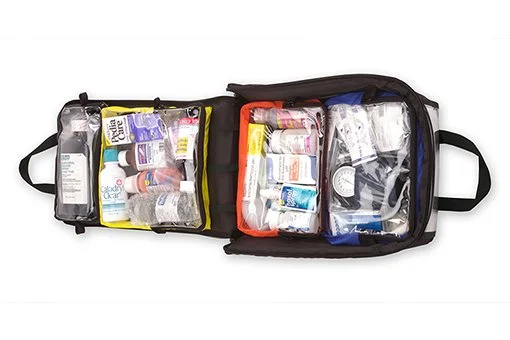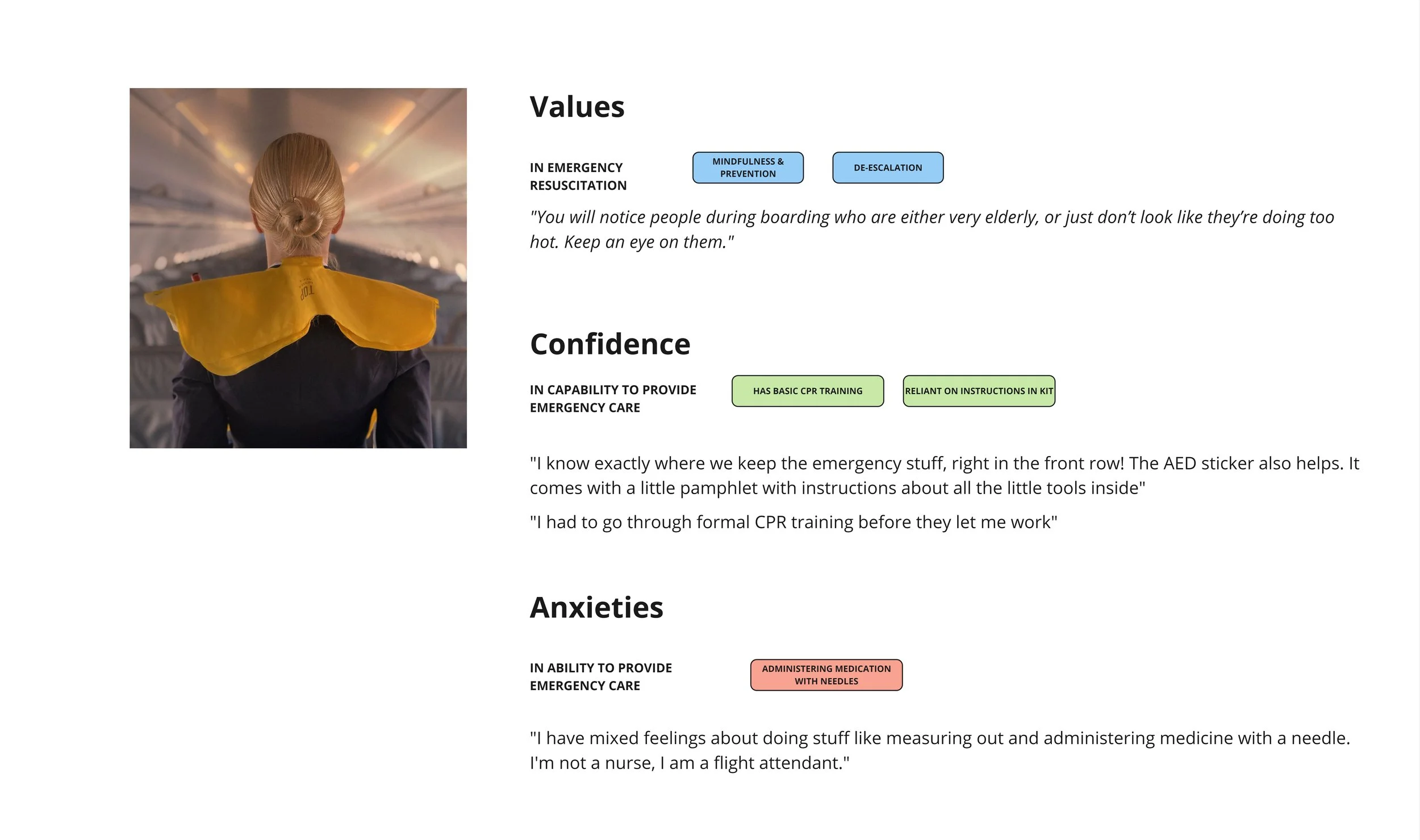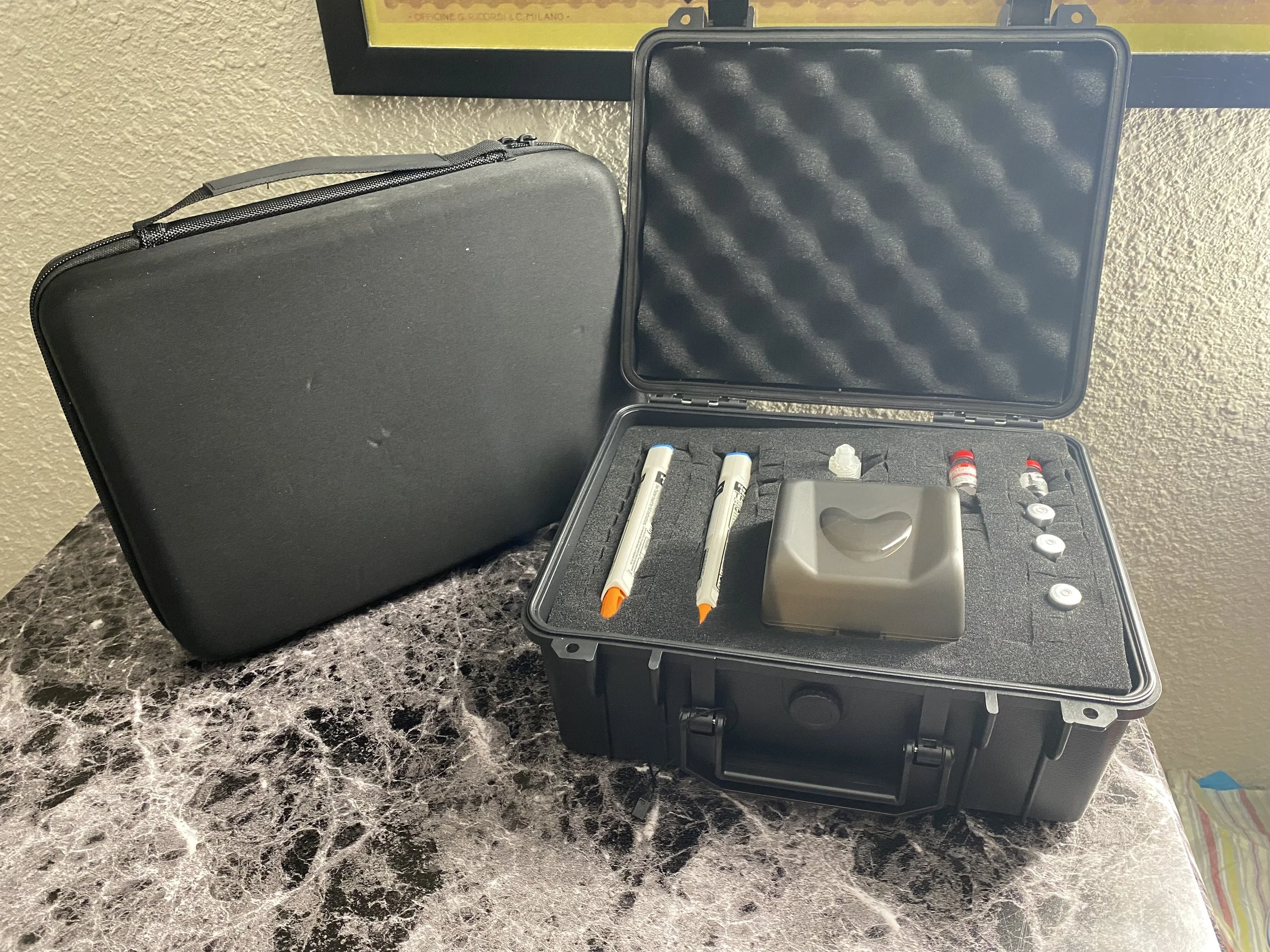
Modernized Airline EMK
Fall 2023
Emergency Medical Kit for airplanes, designed to combat the Federal Aviation Administration’s outdated EMK requirements.

The Federal Aviation Administration requires commercial aircrafts to carry at least one sealed emergency medical kit containing a minimum of 25 specified instruments and medications, alongside a basic first-aid kit and automated external defibrillators.
These requirements have remained the same since 2004 and cases have proven that changes need to be made.
“We don’t want commercial airplanes to become hospitals…additionally, requiring medications with heavy restrictions, such as a narcotic used to treat seizures, is extremely complex, and there are still situations where it’s best to land the plane so the ill passenger can get full medical attention.”
- Dr. Paulo Alvez, Global Medical Director of Aviation Health, MedAire
This is what the standard emergency kits in commercial American airplanes look like.
In the event of an emergency, how confident do you feel navigating and finding the what’s needed, or even knowing what you need?
MD Recommended Add-Ons
Anticonvulsants - Medication used to treat seizures
Antiemetics - Medication used to treat vomiting and nausea
EKG Monitor - Measures heart rate
Electronic BP Cuff - Measures blood pressure
Endotracheal Airway - Keeps trachea open, allowing air to get to the lungs
Epinephrine Autoinjectors - Administers adrenaline quickly, used to treat allergic reactions and low blood pressure
Naloxone - Reverses the effects of opioid overdose
Pulse Oximeter - Measures blood oxygen levels
Supraglottic Airway - Alternative airway option, simpler and faster than endotracheal intubation
Other Insights
Basic CPR training is required to become a flight attendant
If the seal of an emergency medical kit is broken, and any item is used, the entire kit must be replaced before the next flight departs.
U.S. air carriers will usually carry two emergency medical kits to ensure they have at least one sealed kit for the next flight.
At higher altitudes, an SpO2 in the range between 88%-93% is considered normal due to the airplane's cabin pressure.

CPR/AED/First Aid Training
Realizing the gaps in my understanding of basic CPR, I decided to sign up for a CPR/AED/First Aid class.
After class, I went up to the instructor and introduced myself as a university student that was working on a project for medical emergencies in the air. He was more than happy to expand beyond the training material and shared some stories from his time as an EMT.
The User Persona Ron (see below) draws influence from his years of experience in the field and valuable insights!
















